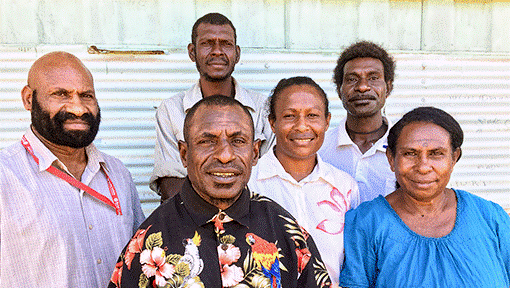The World Health Organization says TB is one of the top ten causes of deaths globally, yet most TB cases are curable if treated. Ending the TB epidemic by 2030 is among health targets of the global Sustainable Development Goals. Australia's 2017 Foreign Policy White Paper recognises the importance of preventing and responding to the introduction and spread of infectious diseases. Health crises threaten economic and human development.
With Australian NGO Cooperation Program (ANCP) funding, the Burnet Institute provides a support team for drug-resistant tuberculosis (DR-TB) patients on Daru Island in PNG. This innovative model engages and empowers the affected community in Daru by training a team of five peer counsellors, called "TB-PALS" (People Affected by, Living with, or having Survived TB) who support TB patients to complete their treatment.
DR-TB patients must visit a treatment site every day for almost two years to achieve a cure. Failure to complete the course results in continued illness and the spread of drug resistance in the community. The TB-PALS provide education and counselling to support patients through their lengthy treatment. Without this support, the treatment time and adverse social impact can prove too great for patients.
"It's quite a tall order, but is the best we have whilst we increase access to newer drugs and shorter treatments," says Burnet's PNG TB technical Director, Dr Kudakwashe Chani.
"This long-term treatment disrupts people's livelihoods and has a huge social impact – they might need to go and fish, or may be unable to work. Or they get sick of it, or the side effects get to them," he adds.
To support their wellbeing, TB-PALS assist patients with their information needs, emotional needs, companionship needs and material needs. They also support the families of TB patients. This holistic approach reduces the impact of social and emotional issues on TB patients and their families; keeping patients in care and enabling a cure from TB disease.
This project supports the Australian Government's Health Security Initiative for the Indo-Pacific. It drives innovation in health security practice and demonstrates how NGOs in particular are vital partners in our effort to encourage greater stability in our region.

